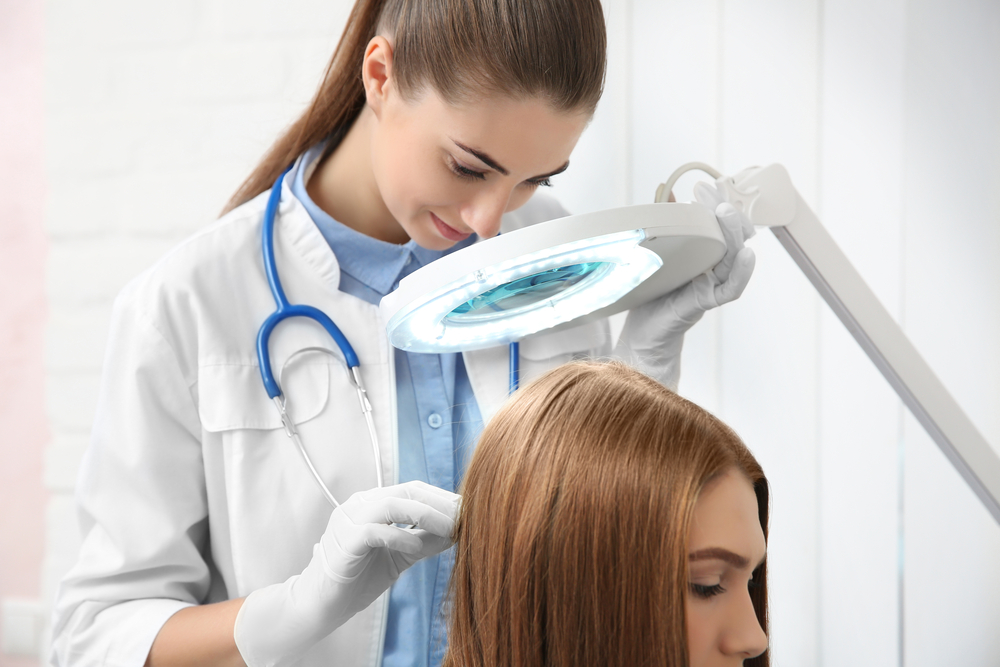How To Get Rid Of Itchy Scalp
How to get rid of itchy scalp
Reaching out to itch your scalp in the midst of a gathering is very embarrassing indeed. Unfortunately, many adolescents and adults suffer from an itchy scalp. Dry scalp, excess perspiration and fungal infections are some reasons for itchy scalp. While the most common cause of itchy scalp is dandruff, there are a good number of other causes as well.
Causes of an itchy scalp
- Dandruff
- Epidermal or sebaceous cyst
- Head lice
- Sunburn
- Psoriasis
- Seborrheic dermatitis
- Cradle cap ( in infants)
- Scalp ringworm
- Neurogenic excoriation
- Acne on the scalp
- Folliculitis, a bacterial infection
- Shingles
- Chicken-pox
- Tinea amiantacea, a fungal infection
- Lichen planopilaris, a fungal infection
- Allergic and contact dermatitis
- Dry and flaky scalp, due to poor hygiene
- Stress
Treatment for an itchy scalp
Treatment options are varied and depend on the cause of itchy scalp.

- Dirt deposits on the scalp is a major cause for itchy scalp. Regular washing of the hair with gentle or medicated shampoos will keep the scalp clean and prevent itching. These shampoos contain antifungal and antibacterial ingredients like tea tree oil, zinc pyrithione, and salicylic acid, which treat the scalp infection and reduce the itching.
- There is a burning sensation felt on the scalp due to sunburn. Applying apple cider vinegar and sun protection lotions helps to alleviate this condition.
- The epidermal cyst can be treated by injecting steroids or through removing the cyst surgically.
Effective home remedies to treat itchy scalp
Itchy scalp causes discomfort and leads to hair loss as well. There are a good number of effective home remedies that can help treat itchy scalp. The ingredients can be easily sourced from your kitchen or medicine cabinet.
- Lemon Juice
The antiseptic property of lemons makes it an effective remedy for a dry and itchy scalp. It’s the most effective in treating dandruff. Fresh lemon juice can be directly applied to the scalp. A mixture of yogurt and lemon juice can be used to massage the scalp. Wash off with a daily shampoo. - Baking Soda
A handy ingredient from your kitchen is baking soda. Right from offering a quick response to zits, baking soda has been extensively used in the treatment of itchy scalp. It exfoliates the scalp and controls dandruff. Combine baking soda with water to form a paste. Apply on scalp and allow to stand for 15 minutes. Rinse off well. - Tea tree oil
Tea tree oil is the most effective to treat itchy scalp. It brims with antifungal, antibacterial and anti-inflammatory properties. A few drops of tea tree oil can be added to your shampoo. You can also combine it with any other base oil and massage the scalp. - Apple cider vinegar
Infections of the scalp due to yeast and fungi can be treated with apple cider vinegar. It is anti-inflammatory and also maintains the scalp’s acid-base balance. Mix apple cider vinegar with equal parts of water and apply the mixture to the scalp. Let it stand for a few minutes before you rinse off the hair. - Aloe vera
The moisturizing properties of aloe vera soothe dry scalp and relieve itching. Apply the gel to your scalp with a gentle massage. Aloe vera is an excellent hair conditioner as well. - Bananas
Bananas do good for your health as well as your scalp. Its nourishing, moisturizing and conditioning properties make it effective to fight off dandruff and reduce flakes and inflammation. Mash bananas, mix with avocado and apply to your scalp. Rinse after 30 minutes. - Witch hazel
Witch hazel is a herb with astringent properties. If the cause of itchy scalp is due to hair coloring and blow drying, witch hazel proves to be an effective remedy. Mix one part of the herb with two parts of water and massage on your scalp. Wash your hair after some time. - Sesame seed oil
An excellent moisturizer that nourishes the hair, sesame seed oil has lubricating and healing properties. This makes it apt to treat dry scalp and offer relief from itching. Warm the sesame seed oil and massage it on to your scalp. Tie a hot towel over your head and leave the oil overnight. Shampoo off in the morning. Continue to do this on a regular basis till the itching subsides.
The suggested home remedies are quite effective in tackling itchy scalp. However, if the condition gets worse, like inflammation and infection due to constant scratching, it’s best to seek help from a dermatologist.

